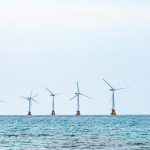SCHOOL CLIMATE STRIKES: EDUCATING YOUNG PEOPLE ON CLIMATE CHANGE
The latest turn in the global climate debate has seen school children taking to the playground and the streets to support the call for governments to do more to tackle climate change and global warming. Inspired by Swedish teenager Greta Thunberg’s protests, the ‘Schools 4 Climate Action’ global movement has been growing steadily, as young people express their concerns over climate change and a perceived lack of action by world leaders.
As an organisation working at the nexus of energy and climate, the World Energy & Meteorology Council recognises the importance of young people having a voice and a platform to share their views on global warming.
In October last year, the United Nations’ Intergovernmental Panel on Climate Change (IPCC) released its Special Report on Global Warming and brought a stark warning from scientists that the world is on the edge of a precipice in the fight against rising global temperatures. The report, based on over 6,000 scientific studies, talked of unprecedented changes required to almost every aspect of human life on Earth, to limit global warming to 1.5C and avoid significant damage to our planet. Top of the list of changes needed, is an immediate and significant reduction in global CO2 emissions, through the use of more renewable energy sources.
Professor Alberto Troccoli, Managing Director of WEMC, said: “The IPCC Special Report highlighted the impact of climate change on our planet and the urgent need to significantly reduce CO2 emissions and limit global warming. This is an issue that affects us all. Governments need to lead the way on a global platform, but on a more simple, everyday level, everyone can play a part in helping to change the way we live for the benefit of our environment.
“Raising awareness of climate issues among young people is vital if our future generations are to continue the fight against global warming and education can play a large part in this. Managed in the right way, without detriment to their learning, we feel there is a real opportunity here to help young people understand more about climate change and get involved in the issues they feel are important for their future.”
Kit Rackley, WEMC’s Education Officer and a former high school teacher, is not surprised that young people are taking this action. “While the school curriculum could cover the issue more intensely and broadly, teachers do a great job of educating students about climate change. A lot of schools also have a very strong ethos in teaching students about democracy, rights and responsibilities. They learn about strikes and grassroots civil movements of the past. Young people are more switched on than many give them credit for, and they want to be heard.”
WEMC is already working with schools to help pupils learn about the impact of weather and climate events for energy production, as part of our educational outreach work. Using the Copernicus European Climatic Energy Mixes (ECEM) Demonstrator, a web-based programme developed with WEMC, students can see how companies use climate and energy information to make operational decisions.
Helping the transition to more renewable energy sources to mitigate the effects of climate change and global warming, will be a key focus for WEMC’s International Conference Energy & Meteorology (ICEM) in Copenhagen this June. ICEM 2019’s core theme is ‘Exploiting the latest weather and climate technology to tackle the energy transition’, focusing on how advances in meteorological and climate information can help the energy industry develop cleaner and more resilient energy systems.
Chad Frischmann, New York Times best-selling author of Drawdown: The Most Comprehensive Plan Ever Proposed to Reverse Global Warming, has been confirmed as the latest expert to join the stellar line-up of speakers, which includes wind power pioneer, Henrik Stiesdal, and Yana Popkostova, Founding Director of the European Centre for Energy & Geopolitical Analysis, and one of the World Energy Council’s under-35 Future Energy Leaders.
Author: Louise Cotterill




